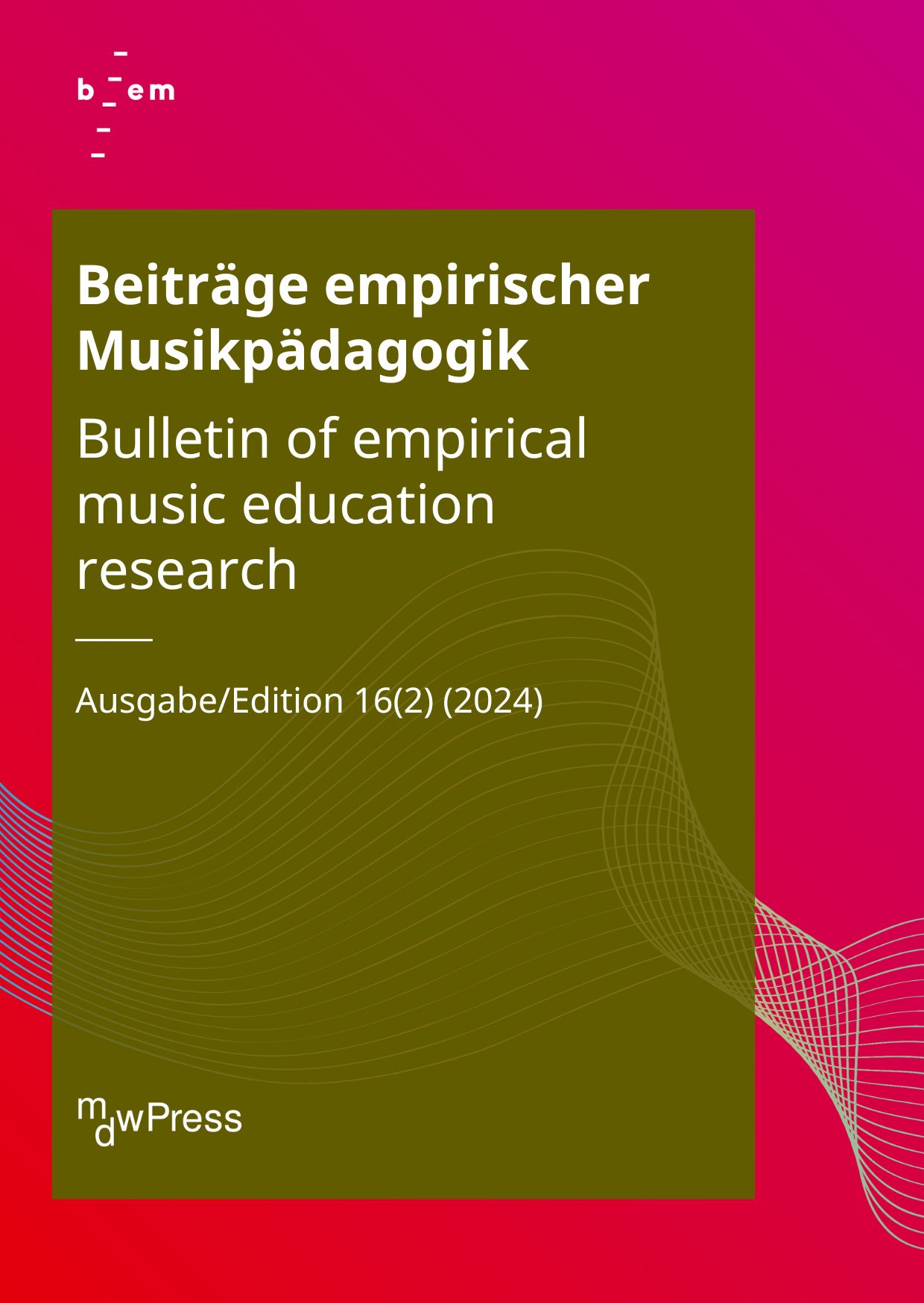Towards modelling instructional quality for music class-rooms: Exploring subject-specific application of the TA-LIS/GTI generic framework
DOI:
https://doi.org/10.62563/bem.v16i2.246Keywords:
generic models, general music education, instructional quality, large-scale studies, observation codes, videographyAbstract
Arts subjects have so far been absent from large-scale studies on instructional quality as well as from related methodological development. The purpose of this article is to explore whether an observation scheme that builds on generic theoretical models and aims to capture instructional quality across school subjects might be meaningfully employed in general music education so that it could serve as a basis for empirical research and reflective practice. We evaluated instructional quality criteria proposed in the video observation system from the study Global Teaching InSights, the third cycle of OECD’s large-scale Teaching and Learning International Survey (TALIS/GTI) by exploring the system’s observation codes for analysis of music lessons on video and comparing the criteria with quality criteria from general music education. We found that the generic models are helpful and may have more to offer both research and practice in music education than we initially expected. The risk when attempting to apply quality criteria that are intended to be generic is that those aspects may be overemphasised while criteria that are essential for music education are pushed out of sight. However, we argue that modelling instructional quality in music classrooms is worthwhile in itself and that the friction points where generic criteria do not fit our subject are particularly interesting. A systematic discussion of quality criteria can sharpen our views and understandings of general music education and connect music education research with interdisciplinary discourse and with a much-needed, broad dialogue within the educational sciences.
Downloads
Published
Versions
- 2024-11-19 (2)
- 2024-10-31 (1)
How to Cite
Issue
Section
License
Copyright (c) 2024 Cecilia Björk, Jens Knigge, Bernhard Hofmann, Gabriele Puffer

This work is licensed under a Creative Commons Attribution-NonCommercial 4.0 International License.
Bulletin of Empirical Music Education Research (b:em) is published as an open access online journal. All articles are freely accessible online free of charge, there are no publication fees (Diamond Open Access). The standard licensing of the articles is CC BY-NC 4.0 (Creative Commons Attribution-Non Commercial 4.0 International (CC BY-NC 4.0))



